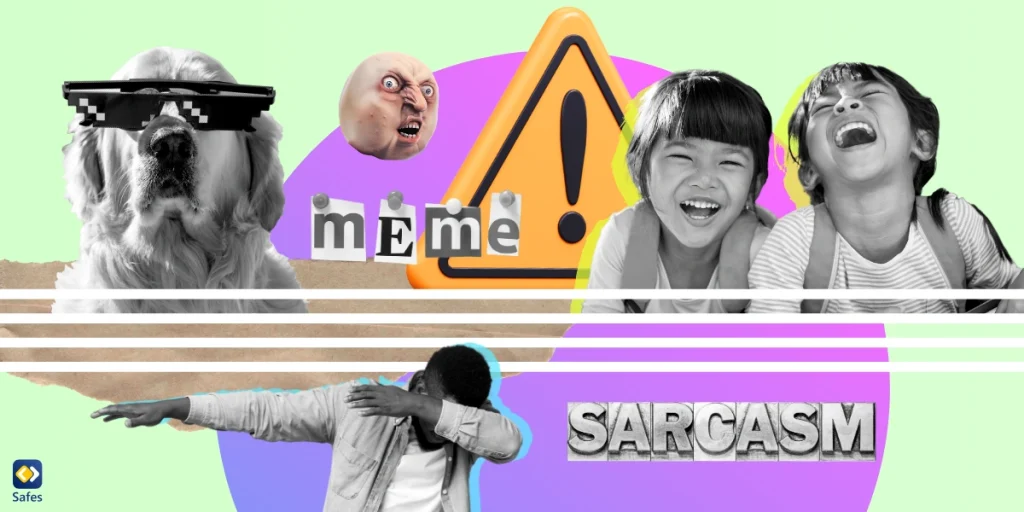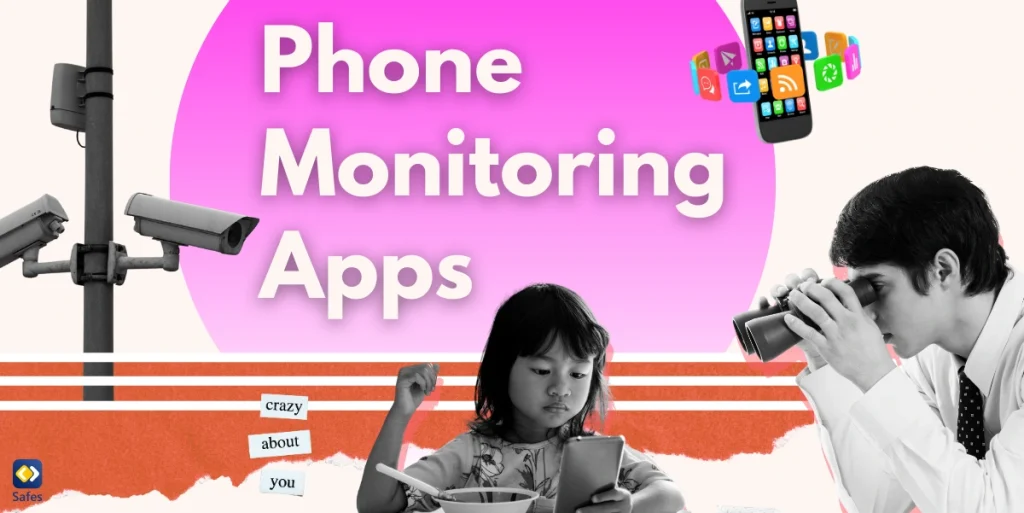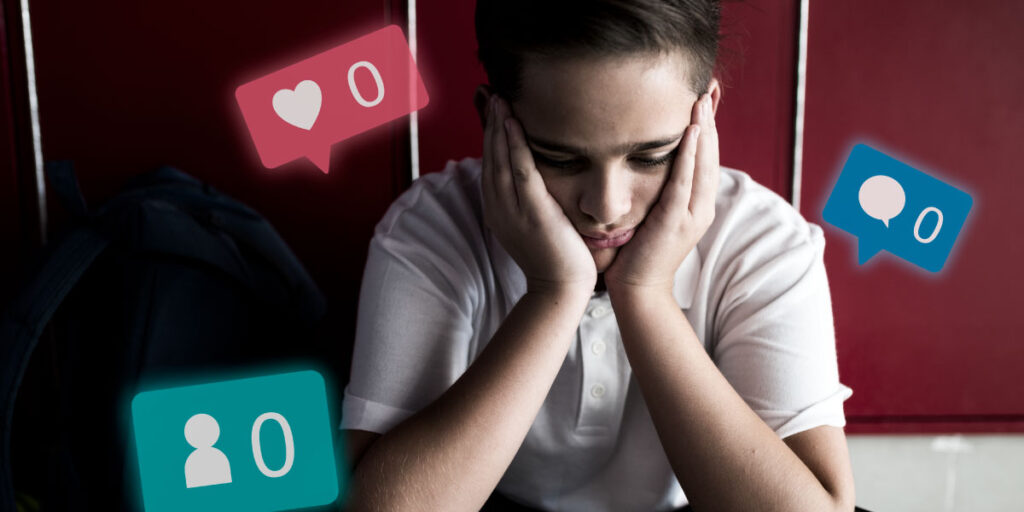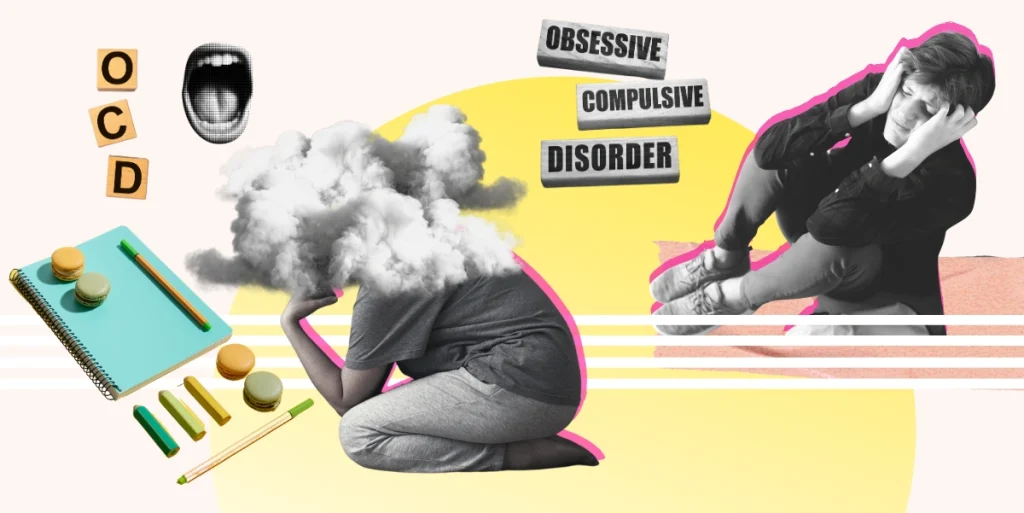Humor has long been recognized as a powerful coping mechanism, a tool for navigating difficult or sensitive topics. However, when humor takes a darker turn, it can leave some feeling uncomfortable, particularly in the realm of dark humor memes. In this article, we explore the world of dark humor memes, the potential risks associated with them, and the practical steps you can take to address these concerns with your child.
Download and Start Your Free Trial of the Safes Parental Control App
Understanding the Appeal of Dark Humor Memes
Dark humor, also known as black comedy or gallows humor, involves making light of subjects that are generally considered taboo, sensitive, or offensive. This includes topics like death, violence, discrimination, and mental illness. Dark humorous memes are a digital extension of this comic style, typically shared and circulated on social media platforms.
Dark humor memes often straddle the line between shockingly funny and unsettlingly offensive. From memes that make light of serious mental health issues to those that revel in the absurdity of life’s cruelties, the world of dark humor memes has no limits and is as varied as it is controversial.
These memes often employ a shock value, leveraging the unexpected to elicit laughter. However, really dark humor memes can touch on deeply uncomfortable topics, and therein lies the controversy.
Where Children Encounter Dark Humor Memes
Children typically encounter dark humor memes online, specifically on social media platforms like Instagram, Reddit, and X (Twitter). These platforms provide an easy way for memes to be shared and spread quickly, reaching a wide audience in a short amount of time.
Private group chats on messaging apps like WhatsApp and Telegram are also common spaces where such content may circulate. As these platforms offer an element of privacy and exclusivity, they can be particularly appealing to teens.
The Risks of Dark Humor Memes
While dark humor memes can serve as a form of catharsis for some, they also carry potential risks. These memes can normalize negative behaviors and attitudes, such as discrimination, violence, and self-harm. For young, impressionable minds, repeated exposure to such content can lead to desensitization or even endorsement of these harmful behaviors.
For example, a meme featuring a picture of a bald person along with a description saying something like “Chemo patients can be the best cooks because you don’t have to worry about hair in your food” may sound like a harmless joke, but can we anticipate how a chemo patient and their loved ones would react to it? The fact is that such topics are often accompanied by mixed feelings. Some people may find it funny to joke about a difficult topic, while others may find it bad taste or even feel offended. To give you a real example of a joke gone wrong, think of the incident at the 2022 Oscars where Will Smith slapped Chris Rock after hearing Rock’s joke about his wife’s baldness.
Many parents express concern about their children’s engagement with extremely dark humor memes. These concerns stem from the fear that such content may desensitize their children to serious issues, encourage inappropriate behavior, or even lead to harmful actions.
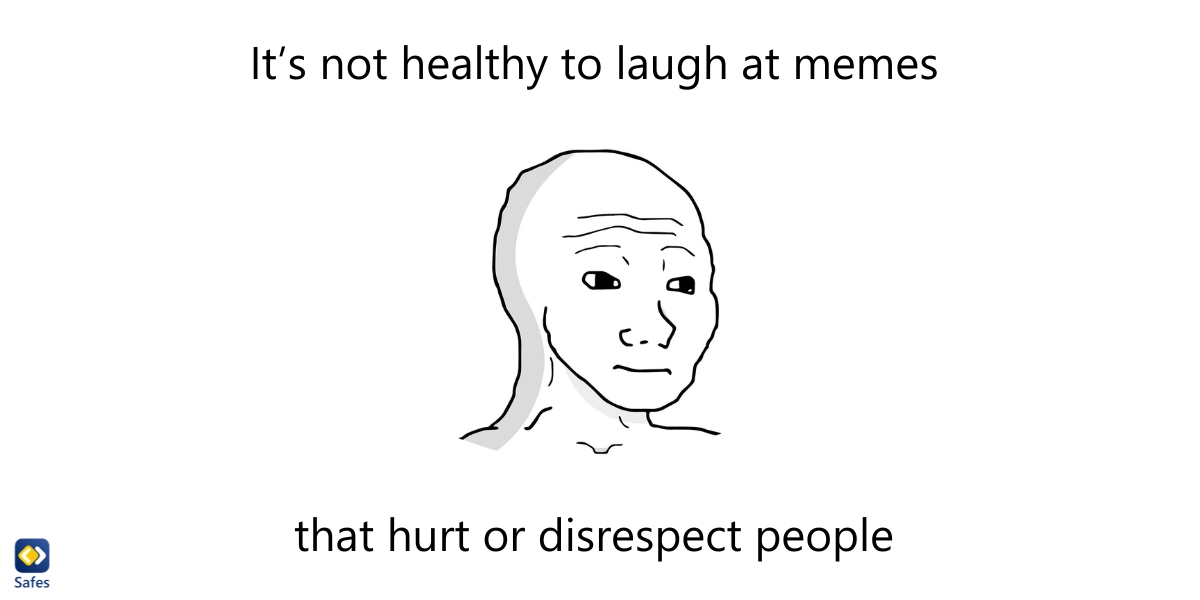
Addressing Dark Humor Memes with Children
Open communication is vital when addressing the topic of dark humor memes with your child. Here are some practical tips for you:
Initiate a Discussion: Ask your child about their favorite memes or online humor sites. This can serve as a non-threatening entry point into deeper conversations about the kind of content they encounter and share online.
Express Your Concerns: Share your concerns about dark humor memes in a calm and non-judgmental way. Explain why certain jokes might be inappropriate or potentially harmful.
Promote Critical Thinking: Encourage your child to analyze and question the memes they encounter. Ask them to consider the underlying messages, potential stereotypes, or harmful attitudes these memes may promote.
Emphasize Empathy: Reinforce the importance of empathy and respect for others’ feelings. Remind your child that what may seem funny to them might be hurtful or offensive to others.
Model Responsible Online Behavior: Show your child how to engage responsibly on social media. This includes refraining from sharing offensive content, respecting others’ perspectives, and reporting inappropriate content.
Use the Safes App as a Protection
Monitoring children’s online activities can be a daunting task. Thankfully, tools like the Safes parental control app can help. Safes allows you to filter and manage the content your child can access online, providing peace of mind and a layer of digital safety.
Using Safes, you can block websites and apps that host harmful content, such as dark humor memes. Moreover, you can monitor your child’s activity on social media such as Instagram and Facebook and get notified if your child encounters harmful content or engages in inappropriate discussions.
Safes offers free and paid plans for different needs and budgets. You’re welcome to download it from our website, Google Play, or App Store. Start a 2-week free trial for a secure online experience!
Conclusion: Encourage Humor but not Dark Humor Memes!
While navigating the complex world of online humor, it’s also crucial to promote positive and inclusive humor among children. Laughter and creativity play a significant role in a child’s development, fostering emotional resilience, social skills, and cognitive flexibility.
The world of dark humor memes can be a confusing and concerning space for you. But with open communication, critical thinking, and tools like the Safes parental control app, you can guide your child toward responsible and empathetic online behavior.
Humor can be a powerful tool for coping and connection. Let’s ensure it’s used in a way that uplifts rather than harms.
Your Child’s Online Safety Starts Here
Every parent today needs a solution to manage screen time and keep their child safe online.
Without the right tools, digital risks and excessive screen time can impact children's well-being. Safes helps parents set healthy boundaries, monitor activity, and protect kids from online dangers—all with an easy-to-use app.
Take control of your child’s digital world. Learn more about Safes or download the app to start your free trial today!
